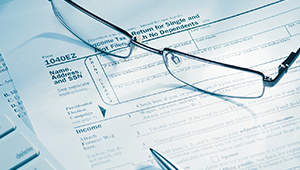What is Britain’s most badly designed tax? A leading contender has to be council tax.
It’s a tax based on 27-year-old house valuations, but this isn’t even the biggest problem. Council tax would bear little relation to property values even if it were revalued. Typical council tax bills for the most expensive homes are only three times as high as for the cheapest.
By contrast, the typical values of those top homes were nearly seven times as high.
This lack of variation in tax bills is compounded by regional differences that mean tax rates tend to be higher in poorer parts of the country. As The Economist puts it, “Buckingham Palace attracts a council-tax bill of £1,400 a year, around the same as some flats in Bradford.”
Its failure as a property tax meant that council tax did little to keep the housing market stable or help tax housing wealth increases in the 2000s. And its regressive nature means the tax now falls hardest on younger and poorer people, who are most likely to live in lower value homes that are proportionally over-taxed. What’s more, although the UK’s other property tax – stamp duty – is more progressive, it is accepted as being bad for the housing market through discouraging people from moving.
Council tax is now far too close to the poll tax it was meant to replace. At the same time, an ageing population is set to put further strain on the public finances, with more funding likely needed for health and social care.
So far, some additional money has in fact come from hasty increases in council tax. But we may be approaching a point where even more significant tax increases are needed – and a complete replacement of council tax could kill many birds with one stone: raising revenue in a way that is fair both across and within generations.
A full replacement tax could be proportional to value – for example a charge of 0.5% of value per year. Or it could adopt a more progressive structure – akin to the one we have for income tax – with a tax-free allowance per property and higher tax rates for the most valuable properties.
And we should aim for annual revaluations – a relatively easy (and useful) task in today’s data-rich world and one accomplished without fuss in many other nations. International experience also suggests that the UK is unusual in making tenants pay property tax rather than landlords, and we should look to develop an infrastructure for allowing the deferral of tax for cash-poor but asset-rich groups.
As council tax is currently so unfair, our new Resolution Foundation report suggests reform would leave a large majority of people better off even while raising enough cash to cut unpopular stamp duty, increase funding for health and social care and reverse government cuts to council tax reduction schemes.
It is not a simple task to balance fairness, regional differences (particularly London’s high property values) and local democratic control over taxes. But nor is reform impossible. And with property taxation devolved to Wales and Scotland, there are multiple opportunities for a replacement to council tax to emerge.
If politicians don’t face up to the need for major property tax reform, funding gaps will need to be filled in other ways, and the outdated poll tax risks trundling on for years to come.




















